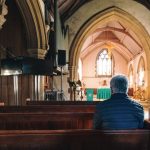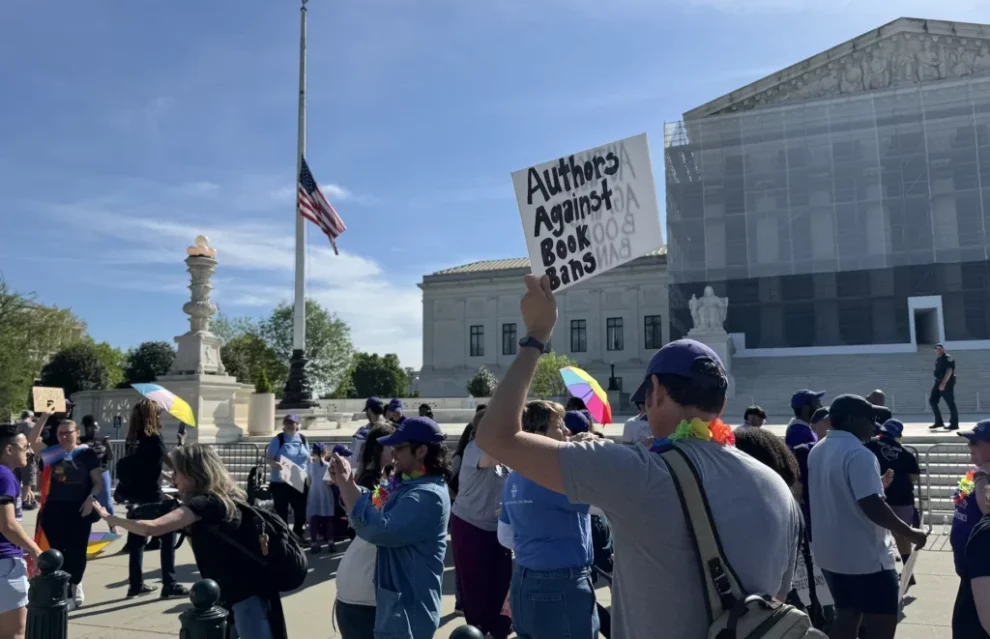The Supreme Court on Tuesday appeared ready to side with parents in a case pitting religious rights against public school curriculum.
At the heart of the dispute is Maryland’s Montgomery County Public Schools’ 2023 decision to eliminate opt-outs for LGBT-related books such as Uncle Bobby’s Wedding, which portrays a same-sex marriage, and Intersection Allies, which explores nonbinary gender identities.

Representing Muslim, Christian, and Jewish parents, Becket Fund attorney Eric Baxter argued that forcing children to participate in these readings violates parents’ First Amendment rights.
“Our clients’ faith teaches they shouldn’t expose children during their years of innocence to instruction about sexuality without moral context,” Baxter told the justices. “That’s not just exposure — it’s indoctrination.”
This case is ‘easier’ than past education disputes, counsel says
Several justices appeared sympathetic to the parents’ concerns, especially regarding the young age of the students. Justice Samuel Alito noted that some of the books were approved for children as young as three or four years old.
“At a certain age, children may not yet be able to distinguish between a teacher’s moral authority and their parents’ beliefs,” he said.
Justice Clarence Thomas pressed Baxter on his reliance on Wisconsin v. Yoder, a 1972 decision that allowed Amish parents to withdraw children from public school after eighth grade.
Baxter responded that this case was “easier than Yoder,” arguing that Montgomery County’s curriculum imposed a “uniquely coercive” environment on much younger children, in part by designing instruction to “disrupt cisnormativity” and challenge traditional gender beliefs.
Across the board, at least five justices seemed inclined to grant some form of relief to the parent plaintiffs in the case, including Alito and Thomas, both appointed by former President George W. Bush, and Justices Amy Coney Barrett, Neil Gorsuch, and Brett Kavanaugh, appointed by President Donald Trump.
Kagan worries about parents opting out ‘for anything’
But other justices were skeptical of Baxter’s sweeping request for parental opt-outs.
Justice Elena Kagan warned that granting such a right whenever a parent has a sincere religious objection could effectively turn every classroom into a battlefield. “Once we say what you’re asking us to say, it will be opt-outs for everyone,” she said, noting that even non-religious parents might object to early exposure to topics such as gender identity.
Kavanaugh pressed Baxter on how far this right would extend. “You’re basically saying opt out for anything,” he said. Baxter agreed, so long as the objection is based on a sincere religious belief.
Alan Schoenfeld, who was supporting the school’s legal position, argued that allowing broad abilities for parents to opt their children out of certain curricula would thereby “conscript courts into the role of playing school board,” a solution he said would extend beyond the appropriate remedy sought by Becket.
“There is nothing intrinsically religious about these opt-outs,” Schoenfeld said.
Justices uncover the burden facing religious families
The question of where to draw the line ran through much of the morning’s argument. Barrett asked Baxter to define what constitutes a burden on religion.
He offered three standards: substantial interference with religious upbringing, pressure to abandon beliefs to access a public benefit, and discriminatory treatment, such as granting opt-outs for some religious views but not others.
Gorsuch focused on that last point, questioning the school district’s decision to allow opt-outs for holidays such as Valentine’s Day or for religious songs in music class, but not for readings during Pride Month.
“That discrimination alone is a burden that gets us to strict scrutiny,” Baxter said.
Jackson questioned what is known about LGBT books used in the school district
But Justice Ketanji Brown Jackson, who spoke the most during oral arguments on Tuesday, echoed the U.S. Court of Appeals for the 4th Circuit’s finding that the case may be premature.
“How can we say you meet any definition of burden when we don’t even know how these books are being used in the classroom?” she asked, pointing to a lack of evidence about teacher instruction or context.
Her concern echoed the 4th Circuit’s reasoning, which dismissed the case in part due to what it called a “threadbare” record.
The appellate court found that the parents had not provided sufficient evidence to show how the books were actually being used in classrooms, whether teachers were merely reading them aloud or actively instructing children to adopt their messages. Without that clarity, the court concluded, there was no concrete basis to determine whether a religious burden existed.
Even as the justices explored various legal frameworks for understanding the case, the real-world stakes remained close to the surface.
SUPREME COURT WEIGHS RIGHT FOR PARENTS TO OPT STUDENTS OUT OF LGBT CONTENT
Baxter noted that the school board had initially promised to allow religious opt-outs but reversed course “overnight” in March 2023, allegedly accusing objecting Muslim parents of aligning with “white supremacists.” That decision, he argued, showed the policy shift was driven by hostility toward religion.
The Supreme Court’s ruling, expected by the end of June, could mark a major turning point in how public schools navigate the tension between inclusivity and parental control, especially when those values collide in classrooms filled with young children.
























